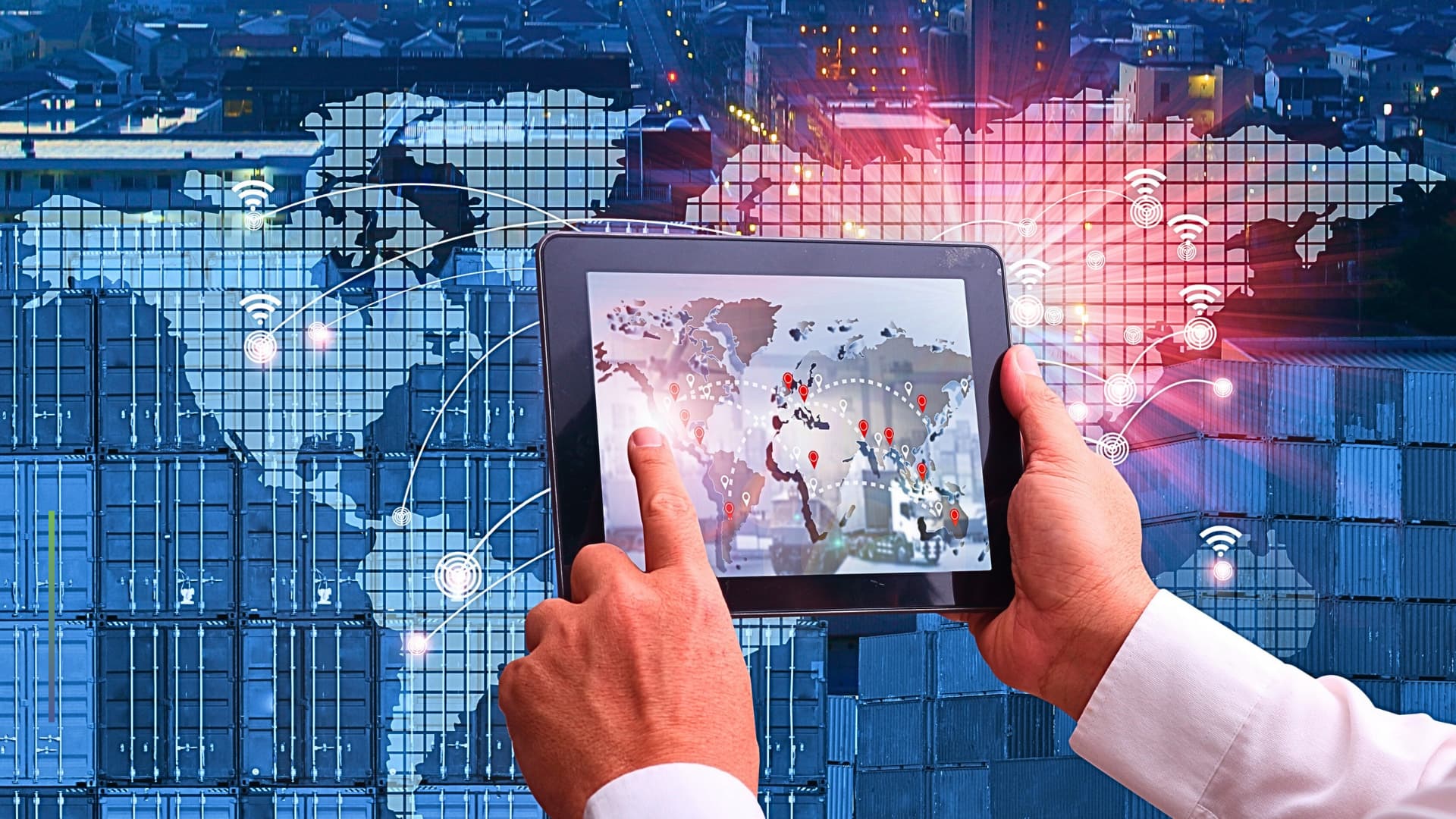
The freight forwarding industry in Saudi Arabia is undergoing a significant transformation, driven by technological advancements and strategic initiatives. As the Kingdom positions itself as a global logistics hub, understanding the role of technology in shaping this sector becomes crucial for businesses and stakeholders.
The Evolving Landscape of Freight Forwarding in Saudi Arabia
Saudi Arabia’s strategic location at the crossroads of Asia, Europe, and Africa makes it a pivotal player in global trade. The Kingdom’s Vision 2030 initiative aims to diversify the economy, reducing dependence on oil revenues by bolstering sectors like logistics and transportation. This vision has led to substantial investments in infrastructure, digitalization, and regulatory reforms, significantly enhancing the capabilities of freight forwarders operating within the region.
With major ports such as Jeddah Islamic Port and King Abdullah Port playing critical roles, the government is focusing on improving port efficiency, expanding railway networks, and integrating smart logistics systems. Freight forwarding in Saudi Arabia is now more technology-driven than ever before, ensuring speed, security, and efficiency in supply chain operations.
Key Technological Innovations Transforming Freight Forwarding
Several cutting-edge technologies are revolutionizing freight forwarding in Saudi Arabia, enabling businesses to enhance efficiency, reduce costs, and improve customer satisfaction. Here are some of the most impactful advancements:
1. Digital Freight Platforms and Automation
The adoption of digital freight platforms automates core logistics processes, reducing paperwork and human error. Automated documentation, customs clearance, and cargo tracking ensure seamless operations, significantly cutting down transit times. Companies leveraging AI-driven platforms experience faster turnaround times and improved service reliability.
2. Internet of Things (IoT) for Real-Time Tracking
IoT-enabled sensors provide real-time tracking of shipments, offering critical data on location, temperature, and security. This technology is particularly beneficial for perishable goods and high-value cargo, ensuring compliance with safety standards and minimizing risks related to theft or spoilage.
3. Blockchain for Secure and Transparent Transactions
Blockchain technology is enhancing transparency and security in freight forwarding. By creating tamper-proof digital ledgers, all transactions, from invoicing to cargo handovers, are securely recorded. This minimizes fraud, simplifies dispute resolution, and builds trust among stakeholders.
4. Artificial Intelligence (AI) and Predictive Analytics
AI-powered predictive analytics optimize route planning, forecast demand, and manage inventory efficiently. Machine learning algorithms analyze historical data to predict potential disruptions, allowing logistics companies to take proactive measures and improve overall operational resilience.
5. Drones and Autonomous Vehicles for Faster Deliveries
Saudi Arabia is exploring the potential of drones and autonomous vehicles for last-mile deliveries. These innovations reduce delivery times and operational costs, especially in remote areas. While still in the early stages, advancements in this field are expected to revolutionize e-commerce logistics and supply chain efficiency in the coming years.
Strategic Government Initiatives Supporting Technological Growth
To support the rapid technological transformation of the logistics industry, Saudi Arabia has introduced several strategic initiatives:
- National Transport and Logistics Strategy (NTLS): Aiming to establish the Kingdom as a global logistics powerhouse, this initiative includes investments of over $133 billion in transport and logistics infrastructure.
- Port Modernization Projects: The development of smart ports and the expansion of existing facilities such as Jeddah Islamic Port will enhance maritime trade efficiency.
- Rail Network Expansion: Plans to increase the rail network from 5,300 km to 8,080 km, including the Saudi Land Bridge project, will improve freight connectivity across the region.
These initiatives are aligned with Vision 2030’s goal of improving logistics performance and enhancing Saudi Arabia’s ranking in global logistics indices.
The Impact of Technology on Freight Forwarding Operations
The integration of technology into freight forwarding operations has led to significant improvements:
- Enhanced Efficiency: Automated processes reduce manual workload and accelerate cargo handling.
- Greater Transparency: Real-time tracking and blockchain ensure visibility across the supply chain.
- Cost Reduction: Optimized routes and AI-driven decision-making lower operational costs.
- Improved Customer Satisfaction: Faster deliveries and accurate tracking increase client trust and loyalty.
Companies like Fast n Accurate Logistics Jeddah are leveraging these technologies to provide high-quality freight forwarding services. Their investment in digital tracking systems and automated logistics solutions ensures efficient and reliable cargo movement across Saudi Arabia.
Where is Freight Forwarding in Saudi Arabia Headed?
The future of freight forwarding in Saudi Arabia looks promising, with continuous technological advancements set to shape the industry. As companies integrate AI, IoT, and blockchain, logistics operations will become more efficient, cost-effective, and customer-centric.
With government-backed infrastructure projects and digital transformation efforts, freight forwarders who embrace these changes will remain competitive in an evolving market. As an emerging industry leader, Fast n Accurate Logistics Jeddah continues to adapt to these technological trends, ensuring streamlined logistics solutions for businesses across Saudi Arabia.
Frequently Asked Questions (FAQs)
1. What is freight forwarding, and how does it work?
Freight forwarding involves managing and coordinating the shipment of goods from one place to another using different transportation methods such as air, sea, rail, and road. Freight forwarders handle customs clearance, cargo tracking, and logistics planning to ensure smooth deliveries.
2. How is technology improving freight forwarding in Saudi Arabia?
Technology is enhancing efficiency by automating documentation, enabling real-time tracking, improving route optimization through AI, and ensuring secure transactions with blockchain. These advancements result in faster deliveries, reduced costs, and higher service reliability.
3. What role does Saudi Vision 2030 play in logistics and freight forwarding?
Saudi Vision 2030 aims to position the Kingdom as a global logistics hub by investing in infrastructure, digitalization, and regulatory improvements. This includes expanding ports, rail networks, and smart logistics solutions to enhance freight forwarding capabilities.
4. What are the benefits of using IoT in freight forwarding?
IoT provides real-time data on shipments, including location, temperature, and security status. This ensures transparency, prevents cargo theft or spoilage, and enhances supply chain visibility.
5. How does blockchain ensure security in freight forwarding?
Blockchain creates a tamper-proof record of all transactions, reducing fraud, ensuring accountability, and streamlining documentation. This builds trust among logistics stakeholders and simplifies dispute resolution.





